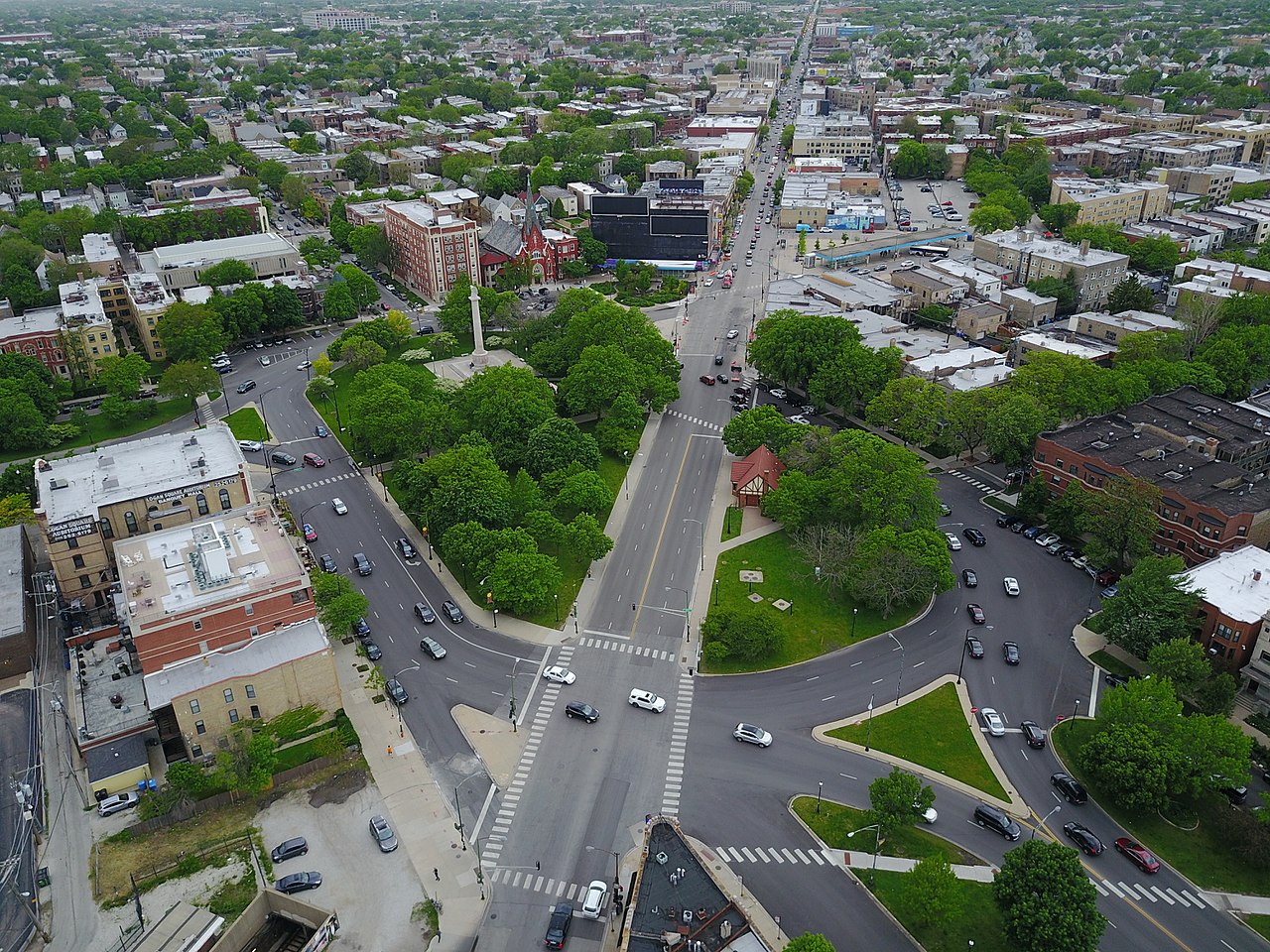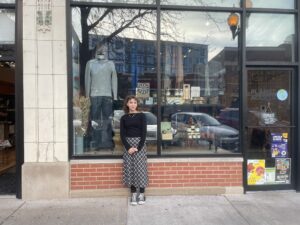On the north corner of Milwaukee Avenue and Rockwell Street in Logan Square ― just across the street from the landmark Congress Theater’s renovation scaffolding ― an overgrown lot sits vacant, home to nothing more than a parked car and an abandoned travel trailer.
The lot will soon house a nine-story modern residential building with commercial space and a rooftop sitting area, a project that could potentially contribute to affordable housing in the neighborhood.
While some business owners welcome the build-up of the area, some community activists question these new plans. They fear longtime residents and vulnerable families could be priced out by those with deeper pockets and a new vision for Logan Square.
Plans for the newly named North Building project at 2117-63 N. Milwaukee Ave. have been recently released by the Greater Goethe Neighborhood Association Zoning and Planning Committee. The building will include 117 studio, one-bedroom and two-bedroom units. The complex will not include parking spaces.
The Milwaukee Avenue Corridor Plan, a Logan Square-area pilot of the city-wide Affordable Requirements Ordinance, requires at least 15 percent of all new residential units to be designated as affordable housing units. In this case, the project is located in a tax increment financing (TIF) district, which increases the affordable unit requirement to 20 percent.
Project developers, New Congress LLC. have committed to 30 percent affordable units, exceeding the requirement.
“There is an acute need for affordable housing in the city, in the 1st Ward, and in Logan Square,” said Raymond Valadez, the Chief of Staff of Ald. Joe Moreno, (1st). “[Ald. Moreno] is always trying to secure a higher percentage of affordable units,” he said.
Prices projected for the units will make them affordable to households earning less than 60 percent of the median income of the area. The Chicago Housing Authority lists the 60 percent area median income for four-person households in Chicago and surrounding areas as $50,760. The maximum affordable monthly rent for a two-bedroom unit is listed by the CHA as $1,143.
The exact per-unit rent cost for the North Building is not yet known.
“Affordable units aren’t really affordable for the people who are most at-risk of being displaced,” said Christian Diaz, the housing organizer for the Logan Square Neighborhood Association.
Diaz said many families in Logan Square are paying more than half of their income in housing costs, despite the benefit of maximum affordable rent subsidies.
“They’re having to make choices everyday about whether or not they’re going to pay for rent or food,” he said. “Or, maybe they’ll pay rent, but they won’t be able to buy shoes for their kids.”
Affordable housing is more of an issue for families than individuals in Logan Square, Diaz said, and the size of the units proposed for the North Building project—up to two bedrooms—is not large enough to fit most families.
The neighborhood association’s zoning and planning committee expressed a similar sentiment. In a letter to Ald. Joe Moreno, released by the organization on Sept. 28, the organization’s chairman, José Espejo, asked for the complex to include fewer studio apartments and instead include larger, three-bedroom units for families.
“The displacement that has transformed Logan Square really has impacted mostly families,” Diaz said. “The people who are the most vulnerable are our families.”
But it’s not just families who have been displaced in the Logan Square area; “Mom and pop” businesses are also being pushed out by gentrification, Diaz said said.
New Congress LLC plans to add 5-7 storefronts on the ground level of the North Building along Milwaukee Avenue and Rockwell Street.
Diaz said rent in these commercial spaces could be made affordable to local small business owners, but will likely become bars or upscale restaurants to serve a wealthier, younger clientele.
“[Commercial space] really doesn’t mean anything for the families that are being displaced,” he said.
Small business owner Max Hertz said he expects new commercial spaces to be good for the area, and for his bike shop, Bike Lane Chicago, which is located across the street from the North Building site.
“It’s going to be probably pretty similar to the other buildings that have gone up in the past year or two,” said Hertz, who is also a Logan Square resident. He added that the number of new residents coming to these newly developed spaces has increased traffic to his shop.
“It’s all going to be good for business,” he said.
In the same letter from zoning and planning committee to Ald. Moreno, Espejo voiced concern that the North Building and its potential to house so many people will add strain to the already crowded CTA Blue Line trains, especially during peak travel hours. The absence of parking spaces for the North Building makes it what Espejo called a “transit-oriented development,” meaning that many of the residents will be public transportation users.
Residents who are faced with the crowded public transit system may opt to get around on bikes instead. Hertz said he has seen an increase in the interest in bike travel because many of the transit-oriented nature of the developments that have gone up in the area in the last few years.
Espejo also recommended that the developers of the North Building make other changes to the current plans for the project, including extensive green space both around the building and on the rooftop, as well as some public seating and art.
Valadez said the plans for the new building “are by no means the final product.” He said the zoning and planning committee will meet again with the developers to discuss these recommendations. Then, there will be a larger community meeting.
“It’s a major project, and the community will have a chance to hear about it, see the revised proposal…and learn the impacts of the proposal on the community,” Valadez said.
The North Building project is slated to break ground in 2020.







Be First to Comment